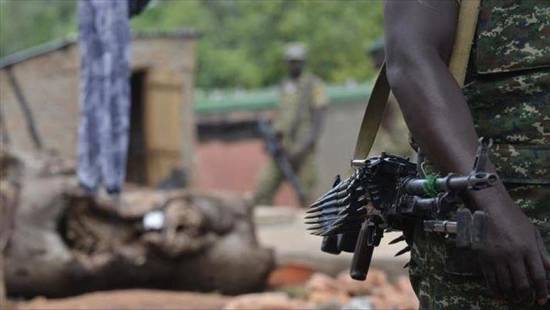YAOUNDE, Cameroon
Recent clashes between government forces and rebel groups in northern Central African Republic (CAR) have forced more than 2,000 refugees to cross into Chad in the past week, the UN Refugee Agency (UNHCR) said Tuesday.
The new arrivals from CAR’s Kaga-Bandoro region told the UNHCR in Chad that they fled clashes as well as acts of violence, pillaging or extortion from rebel groups as government forces were closing in on them.
The situation in the landlocked African country worsened after the rejection of former President Francois Bozize’s candidacy for the December 2020 presidential election.
Hostilities between a coalition of non-state armed groups and government forces have continued over the last four months, plunging the country into a new cycle of violence.
Chad currently hosts close to 11,000 of the 117,000 CAR refugees who also fled to neighboring Cameroon, the Democratic Republic of Congo (DRC) and the Republic of the Congo in the wake of the post-electoral violence, which also displaced 164,000 people inside the country, according to the UNHCR.
"To reach Chad, people had to wade shoulder-deep through the Grande Sido river, with some carrying their few belongings on their heads.
"The refugees are now settled in Gandaza village and the bordering town of Sido, although some are having to resort to crossing back into CAR to find food or salvage what little is left from their properties," the UNHCR said.
CAR is one of the world’s poorest countries and has been facing one of the 10 most under-reported humanitarian crises for five years in a row.
It has been troubled by unrest for years, but since May 2017, fresh and fierce clashes between armed groups have wrought increasing suffering, deaths and the destruction of property.
Violence and insecurity following the December 2020 general election have also forced tens of thousands more to flee, according to the UNHCR./aa


